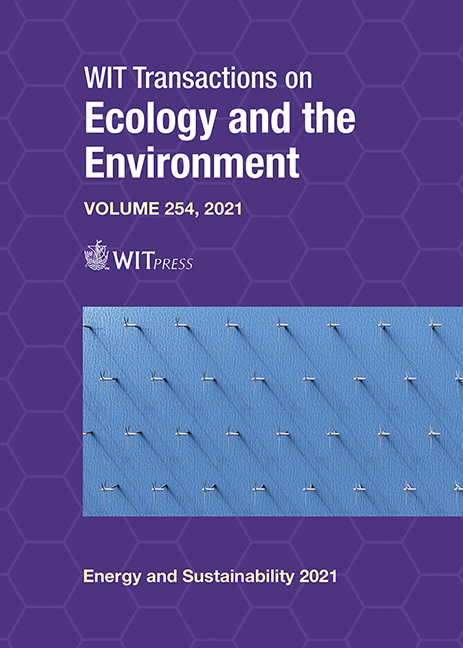METHODOLOGICAL FRAMEWORK FOR ENERGY PROJECT EVALUATION IN RUSSIAN BUSINESS PRACTICE: IMPROVING THE OBJECTIVITY OF INVESTING DECISIONS
Price
Free (open access)
Transaction
Volume
254
Pages
12
Page Range
3 - 14
Published
2021
Size
324 kb
Paper DOI
10.2495/ESUS210011
Copyright
Author(s)
GALINA CHEBOTAREVA, ANASTASIA DESYATKOVA
Abstract
Investment projects in the energy sector are complex and super capital-intensive plans involve not only individual companies, but also cities and even whole regions. This makes it relevant to investigate the issue of objectivity in the evaluation of investment projects and investment decisions. Despite the basic concepts and evaluation procedures being spelled out in Russian legislation, certain methodological aspects are left to the discretion of energy companies. There is a serious problem of the lack of sufficient hands-on experience in effectiveness management in Russian energy companies under out-of-the- ordinary and fast-changing conditions. This further dents the objectivity of investment project evaluation. The article presents a summary of methods of evaluating the effectiveness of energy projects that are used in Russia and abroad. An expert analysis of the applicability of the methods was conducted on the basis of 15 criteria, including technical, social and economic, industry-specific aspects, sensitivity, impacts of risk etc. Based on the results of the analysis, the authors suggest their own method of evaluating the effectiveness of energy projects. The method supplements traditional investment calculations with ten new phases, including scenario forecasting of revenue, estimation of operating costs, analysis of risks on the basis of project sensitivity, measurement of technical and economic performance etc. The method was given a trial by Russia’s largest grid company Rosseti. The calculations confirmed enhanced objectivity of investment decisions compared to an approach used previously. They served as the foundation for drafting methodological recommendations for the adoption of the method by the energy company.
Keywords
energy sector, project, investment, investment analysis, economic efficiency, investment decisions, risks, sensitivityanalysis, expert assessment





